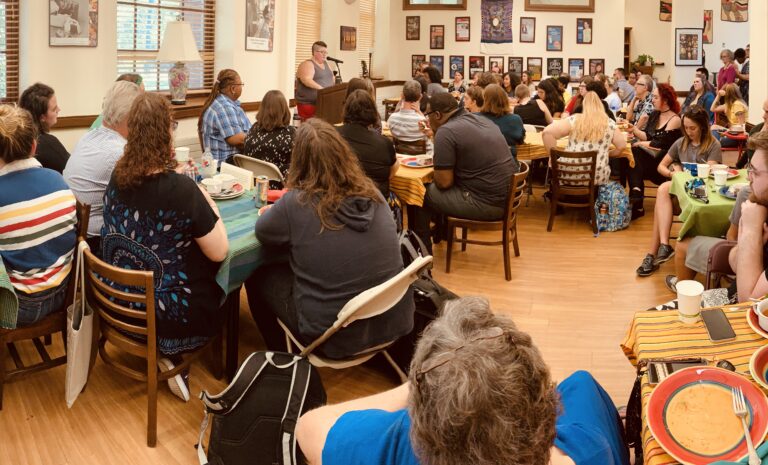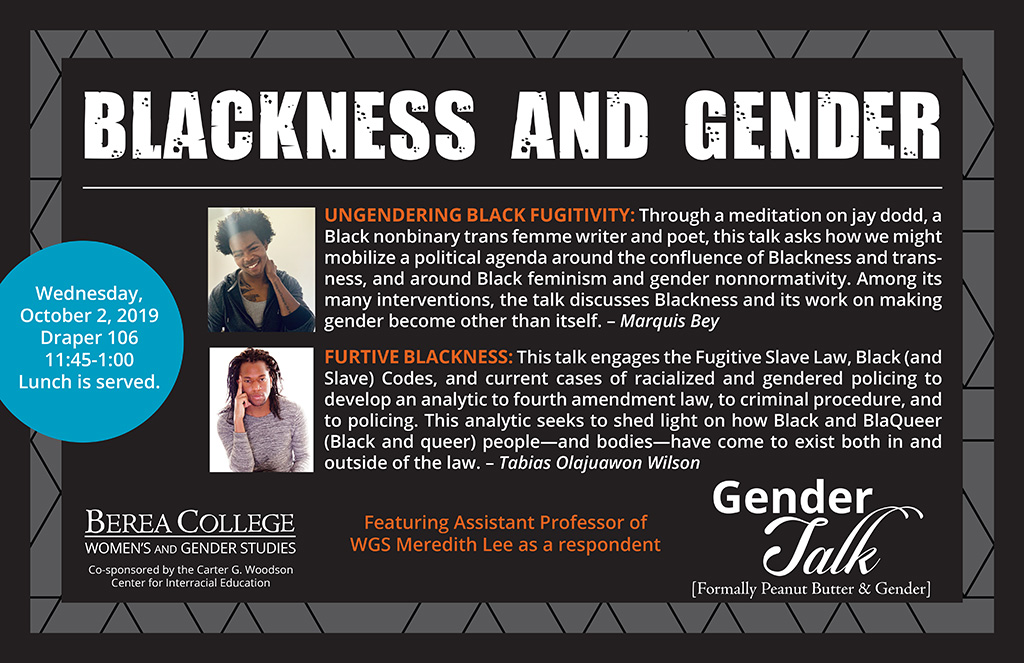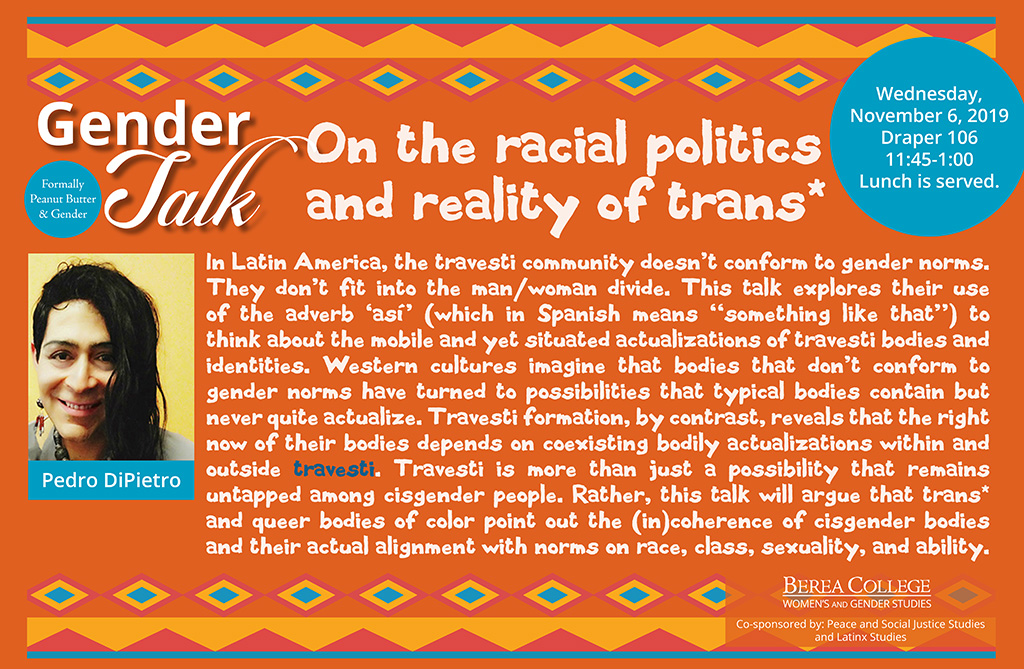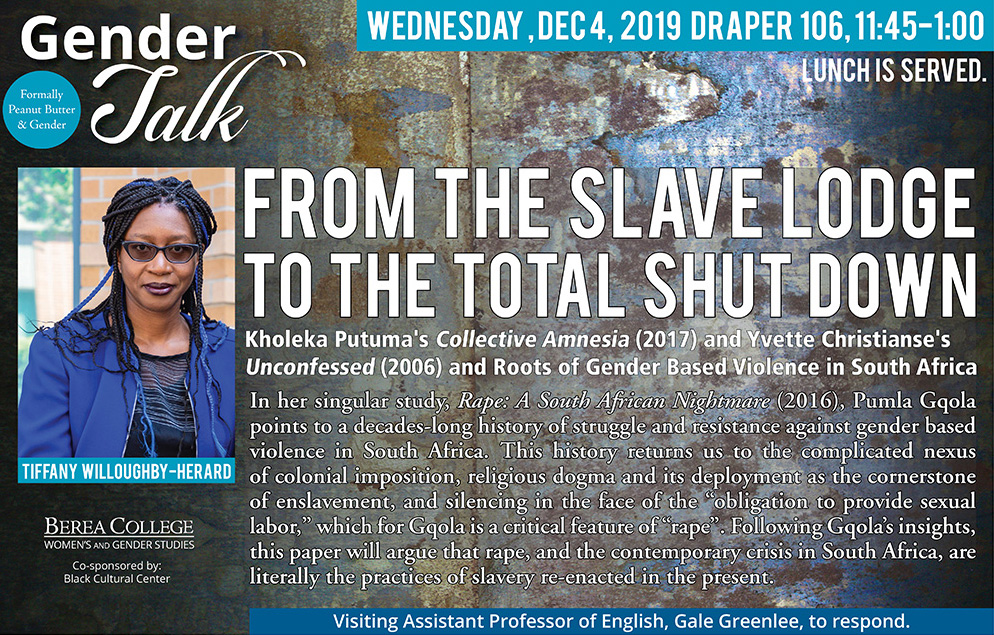New center is a welcoming hub for scholarship, activism and radical inclusion
On a gray day in February, warm soup and stimulating conversation welcomed members of the campus community to Draper Hall, room 106. It was the first Gender Talk of 2020, and the speaker, Dr. Mark Rifkin, a professor of English and Women’s and Gender Studies at the University of North Carolina-Greensboro, shared his research about the relationship among protoanthropology (the study of humans prior to writing), Queer activism and indigenous scholarship, especially in regard to defining family and kinship. Then Berea anthropology professor Dr. Broughton Anderson shared a response and asked this question: Are we, Berea College, creating places of belonging and kinship?
A lively discussion ensued as students, faculty and staff reflected on Rifkin’s theories and their import on both academic teaching and practical policies at the College. This kind of stimulating and challenging reflection is exactly the point of the Gender Talk series (previously named Peanut Butter and Gender), the flagship program of the new Women’s and Gender Non-Conforming Center.
The center, directed by Dr. M. Shadee Malaklou, also chair of the Women’s and Gender Studies (WGS) department, joins the eight other centers on campus like the Loyal Jones Appalachian Center and the Carter G. Woodson Center for Interracial Education. They serve to expand transformative learning beyond the classroom and into the community, and they serve as important venues for instilling a sense of belonging on campus.
Through these kinds of events, the center is engaged in deepening the campus community’s knowledge. But scholarship is only one purpose of the center. It also offers a campus home for LGBTQIA+ students.
Students who are gender and/or sexual minorities routinely report they don’t feel like they belong here. They walk through the world wearing protective armor and need a place where they can find respite.
Dr. M. Shadee Malaklou
“Students who are gender and/or sexual minorities routinely report they don’t feel like they belong here,” Malaklou said. “They walk through the world wearing protective armor and need a place where they can find respite.”
Junior Mandy Snowden, a WGS minor, can attest to the welcome at the center. When she first arrived on campus, she gravitated toward WGS’s large open space in Draper for studying and hanging out. Now she works at the center housed there and offers its hospitality to others.
“The campus was missing a space that welcomes people who identify as LGBTQIA+,” she said.
Besides the physical space, the center also holds an intangible psychic space for these minority students through other programming. The College’s Mountain Day in 2019 corresponded with International Pronoun Day. Snowden helped staff a booth that curated a photo series on inclusive pronoun usage. Visitors to the booth picked up art pins with their preferred pronouns and wrote personal reflections about what gender means to them. It introduced students to the center as a place open to engaging issues around gender and sexuality.
One of the exciting developments for Malaklou is the center becoming a hub for people throughout campus who think about social justice concerns. The glass doors of the center space are plastered with flyers announcing programs with Asian Studies and college counseling services. The space also is used regularly by campus activist groups.
In a relatively short time, Malaklou and her colleagues have nurtured partnerships to magnify the center’s impact and establish it as an inclusive haven on campus. Dr. Jakeya Caruthers, chair of the African and African American studies department, also teaches in WGS. In February, she hosted a study salon series about Toni Morrison and chose to have it in the center.
“The space is so special,” she enthused. “It is one of the warmest places to gather.”
Provost Dr. Linda Strong-Leek helped cast the vision for the center. As vice president for diversity and inclusion and faculty in the WGS department, she sees the importance of its mission to serve the academic and personal needs of students.
“The intentional programming from queer, brown and Appalachian people has spoken in many ways to students’ experiences,” she said. “Some gender non-conforming students don’t even have a safe place in their own home. I believe we are honoring John G. Fee’s radical history of inclusion.”
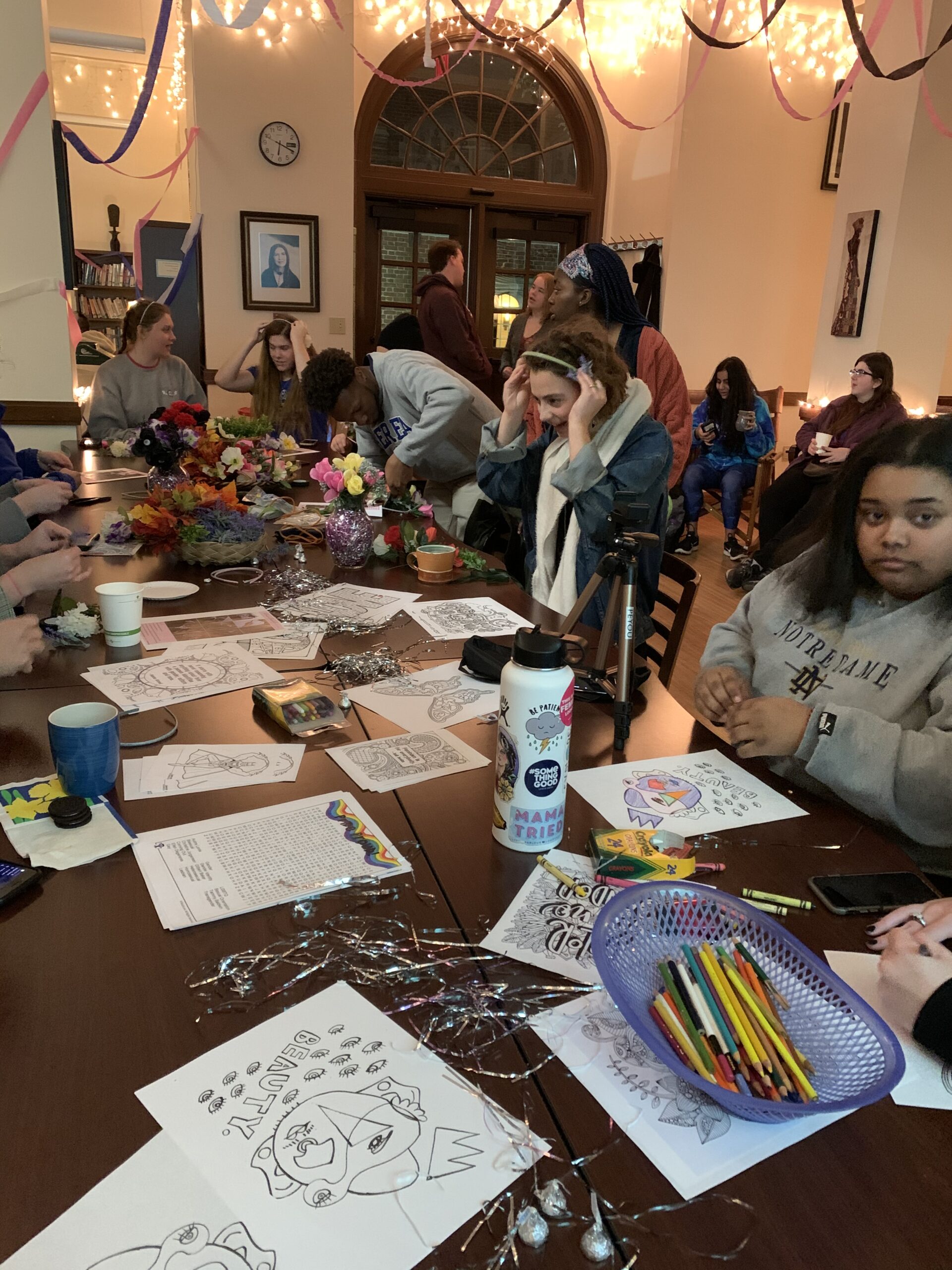
Gender Talk topics have encompassed Appalachian, Latin American, indigenous and Black perspectives on gender and sexuality. “The talks expose students to the way the world works and their place in it,” Dr. Malaklou said. The response from a local professor after each speaker adds a Berea-centric perspective to the discussion.
Scheduled speakers are both renowned scholars with name recognition and up-and-coming theoreticians. One of the leading speakers in the fall of 2020 will be Dr. Susan Stryker, visiting professor at Yale for 2019-20. According to Malaklou, Dr. Stryker is a leading figure in transgender studies, writing widely for both academic and public scholarship publications. A filmmaker, Stryker won an Emmy award for her documentary film “Screaming Queens: The Riot at Compton’s Cafeteria.”
“The Gender Talk speakers are formidable scholar-activists,” Malaklou explained. “I want to raise the academic profile of WGS as well as create space for theoretical conversations for a general audience.”
Along with Gender Talk, the Women’s and Gender Non-Conforming Center is launching a growing cadre of programs. The monthly offering, “An Evening with an Activist,” highlights the radical work of Berea students. In February, student presenter Azis Toktobaev ’20 shared how he became the target of both fake news and major media outlets in his native Kyrgyzstan after his involvement in a public protest.
At the conclusion of the fall 2019 semester, students in Malaklou’s Gender, Sexuality and Black Lives Matter class hosted a teach-in and panel discussion at the center to share what they learned with the campus community.
“The panel consisted of professors, a residence hall coordinator and a student who had experience with racism,” shared Destiny Easley, a first-year student in the class. “We wanted to bring attention to this issue on campus. We weren’t expecting people to come, but 25 people showed up, and even guests who already agreed with the panel learned things.”


